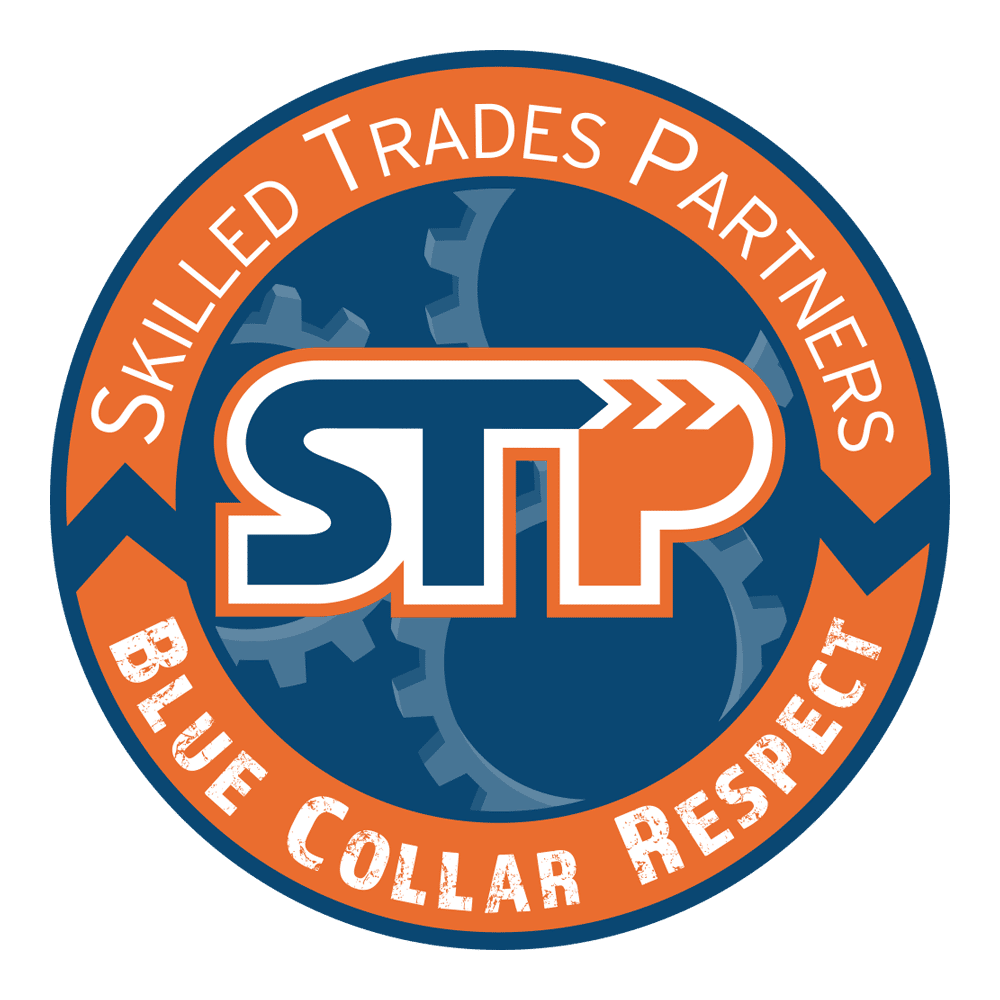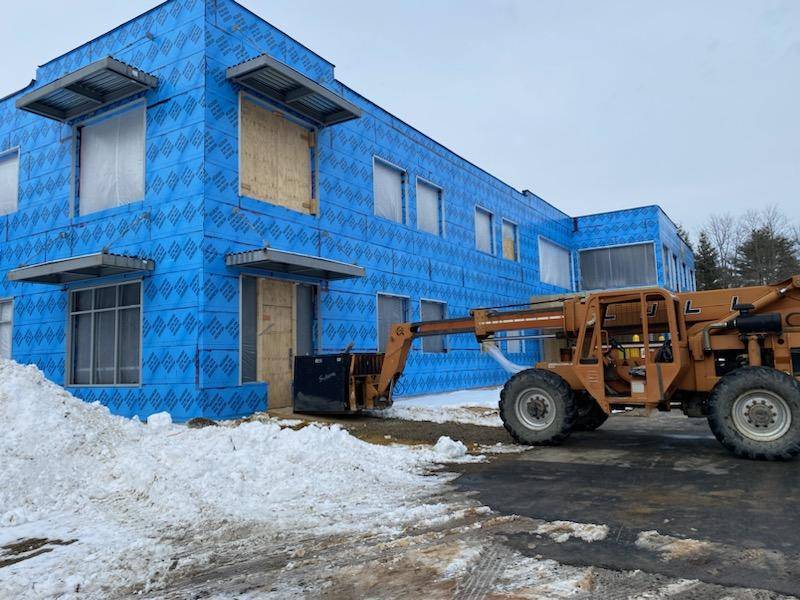Get ready to learn about all the skills a skilled tradesman needs to have a successful career in construction… because in this blog, we’ll be diving into the top ten!
What is a Skilled Tradesman?
Skilled tradesmen are the people who’ve built the world we live in: our houses, offices, stores, factories, and community. Skilled tradesmen have a wide skill set to get jobs done precisely and as they should be. Can you imagine a world where no plumber can fix broken pipes or no electrician to ensure the lights function correctly? We certainly can’t.
Skilled tradesmen are the central pillar of many industries by ensuring that everything works as it should.
A career as a skilled tradesmen in New England can be extremely lucrative. Skilled tradesmen go to a vocational school for a few years and graduate set up for a lifetime of success in the field. Plus, most construction staffing companies, like STP, provide ongoing learning opportunities so they can stay up to date on the latest skills and requirements of the industry.
Overview of Skilled Trades Roles
People in skilled trades play a huge role as they’re the ones who build the infrastructure we all need to function. This field requires a lot of manual work and requires specialized knowledge.
- Skilled trades is a broad term that denotes professions that primarily involve doing things with your hands, with specialized knowledge.
- These trades entail plumbing, welding, carpentry, electrician work, and others.
- Skilled tradesmen are the backbone for establishing and maintaining the infrastructure network of the world.
- In contrast to those areas of work that mainly deal with desk jobs, the skilled trades require hands-on skills and experience.
- The skilled trades directly and immediately affect public life, ensuring gas, water, and heating supplies are available.
- Construction jobs provide a career opportunity for people who enjoy practical work and are rewarded through clear outcomes.
- Practical education through vocational schools, apprenticeship and workplace training is the path most skilled tradesmen take when it comes to learning the job.
How To Become a Skilled Tradesman
Interested in learning how to become a skilled tradesman? To start your career, you’ll need…
Educational Requirements
First, you must figure out the educational requirements for a trade that interests you. Nevertheless, some occupations might not require a college degree, but rather a successful completion of a vocational program to succeed. Make sure to research the particular requirements for your desired profession to avoid being overlooked in the application process.
Apprenticeships and On-The-Job Training
The skills required for most construction jobs are often obtained through trial periods and hands-on training as an apprentice.
These practical sessions provide a way for beginner tradesmen to apply what they are taught by the more experienced professionals and, at the same time, earn some money.
Apprenticeships join classroom lessons and practical training, developing comprehensive training in your chosen trade. Skilled Trades Partners always has apprenticeship roles available, all of which come along with great pay and benefits.
Certification and Licensing Processes
After completing required education and training, you must obtain the relevant certificates and licenses to work as a tradesman. The regulations for each trade and location also differ, making knowing the rules that apply to your state necessary.
Certifications show that you have proficiency and are knowledgeable about your selected trade; at the same time, licensing allows you to work in your field legally.
Skilled Tradesmen – Skills, Tools and Techniques Needed
In the world of construction, challenges come up. Being able to point out the problems and offer practical ways towards a solution is essential for skilled tradesmen. The trades are all about adaptability and resourcefulness.
Attention to Detail
Precision occupies a prominent place in construction projects. From ensuring each piece is measured twice to the perfect cut to making sure everything is sealed right, attention to detail is a sign of excellence. Making a firm commitment to delivering the best guarantees satisfied construction companies, which builds you an excellent reputation in the field.
Time Management
By planning and organizing construction work, you’ll be able to make sure that everything runs smoothly and that projects finish on time.
Whether working individually or as a team, efficiently managing workload is critical for everyone to succeed.
Communication Skills
Effective communication lays the foundation of all successful careers and projects. Tradesmen must communicate well with their team members, supers, and the staffing company they are employed by.
Being able to comprehend directions and represent information correctly so that there is no miscommunication allows everyone involved in the projects to achieve better results.
Physical Stamina
A skilled tradesman typically endures long periods of strenuous physical activity through this work. Deciding whether you lift heavy objects, work in extreme conditions, or walk for long periods, striving is very important. If this is something that doesn’t sound like it’s for you but you’re still interested in the construction industry, you could always consider a role as a construction professional. At STP, we hire Project Coordinators, Project Superintendents, Project Managers, Construction Managers, Estimators, Engineers, Architects, Foremen and more. Apply today!
Similarly, on top of physical stamina, observing health and safety standards is paramount to avoid injuries and prolong one’s career.
Customer Service
Developing strong connections with the construction companies you are working for, even if you are technically employed by a skilled trades staffing company, is the foundation for success in trades. This is about more than just completing the task at hand, your super should have an excellent overall impression.
From the initial contact to resolving problems, making your supers happy is the key to getting even more assignments on new job sites.
Teamwork
Skilled tradesmen rarely work alone – they often need to cooperate with their colleagues to address larger tasks and to achieve shared objectives. Working in a team means communicating effectively, sharing knowledge and resources, and helping coworkers who want to achieve the best possible outcome.
Being a strong team player on the job site helps to create a feeling of being together and makes the work more agreeable for everyone involved.
Ready to Get to Work Now that You Know Exactly What You Need?
Being a good tradesman is about getting good at your craft and having the skills and experience that you need for the trade you choose to pursue. Every aspect is vital for your success, which includes technical proficiency, problem-solving, communication skills, and business acumen.
Remember, whether you fix a leaking faucet or build a brand-new structure, your dedication and knowledge are of the essence. Therefore, keep up the process of perfecting your craft, remain teachable, look for an employer that provides tuition reimbursement like STP, and devote yourself to providing the highest quality craftsmanship. See what roles STP has available here.


